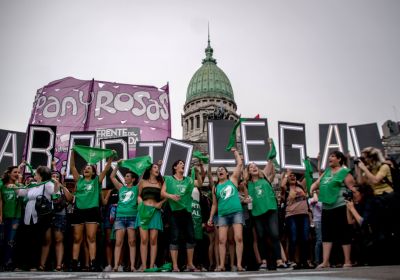-
-
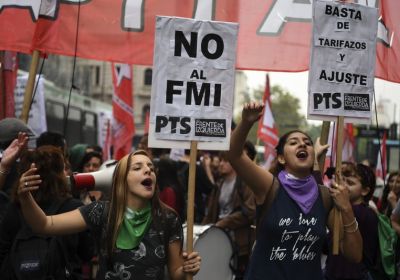
Thousands of Argentine’s were on the streets on May 15 protesting President Mauricio Macri’s latest macroeconomic policy — a major loan from the International Monetary Fund (IMF).
-
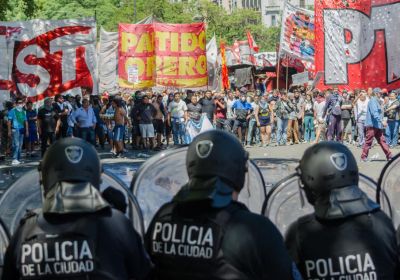
Mass mobilisations broke out in Argentina over the last two weeks of 2017 following the government’s attempt to cut pension benefits. Unions, political parties and student organisations took to the streets to protest the austerity measures and resist the battering of the police.
-
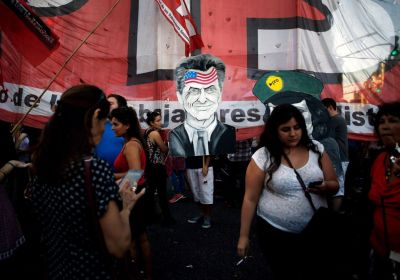
Argentina went to the polls on October 22, in what many saw as a crucial mid-term test for President Mauricio Macri and the right-wing coalition behind him, Cambiemos (Let’s Change).
In the end, Cambiemos came out strengthened, while the Left and Workers Front – an alliance of revolutionary parties – continued to build on its previous electoral successes, winning 1.2 million votes.
-
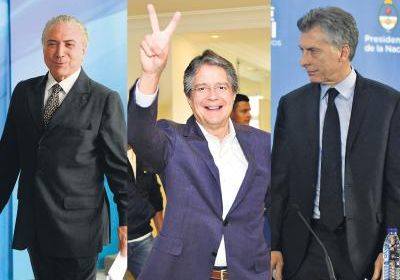
Reflecting on recent experiences of dealing with the right’s return to power in their own countries, close to 100 social movements and activists from Brazil and Argentina have signed a statement calling on the people of Ecuador to vote against right-wing neoliberal banker Gulliermo Lasso in the second round presidential run-off scheduled for April 2.
Among them are activists from Via Campesina, the Rural Landless Workers Movement (MST), the Popular Brazil Front (FBP) the United Workers Central (CUT), the Argentine Workers Central union confederation (CTA) and the Association of State Employees (ATE Capital).
-
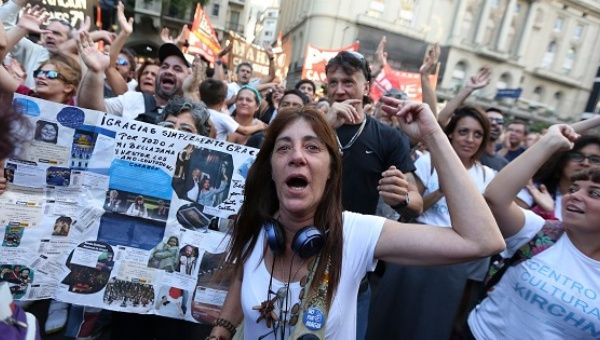 Protest in Buenos Aires against Macri government's public sector layoffs, January 29, 2016. Phot: TeleSUR.
Protest in Buenos Aires against Macri government's public sector layoffs, January 29, 2016. Phot: TeleSUR.
-
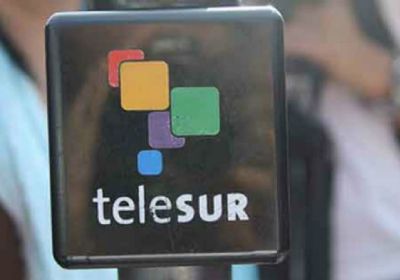
The government of Argentina is seeking to take pan-American TV station TeleSUR off the air, in a move the broadcaster said on March 28 amounts to censorship. Latin American social movements have already condemned the move by the South American nation's new right-wing President Mauricio Macri.
-
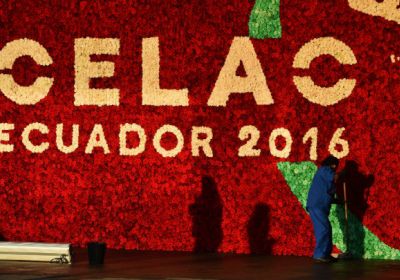 The 2016 summit of the Community of Latin American and Caribbean States (CELAC) began on January 26 with the meeting of foreign ministers and chancellors of the Latin American nations at the headquarters of the Union of South American Nations (UNASUR) in Mitad del Mundo, Quito, Ecuador. CELAC, a regional body involving all nations in the Americas except for the United States and Canada, was officially created in Caracas in 2011 under the leadership of then-Venezuelan president Hugo Chavez.
The 2016 summit of the Community of Latin American and Caribbean States (CELAC) began on January 26 with the meeting of foreign ministers and chancellors of the Latin American nations at the headquarters of the Union of South American Nations (UNASUR) in Mitad del Mundo, Quito, Ecuador. CELAC, a regional body involving all nations in the Americas except for the United States and Canada, was officially created in Caracas in 2011 under the leadership of then-Venezuelan president Hugo Chavez. -
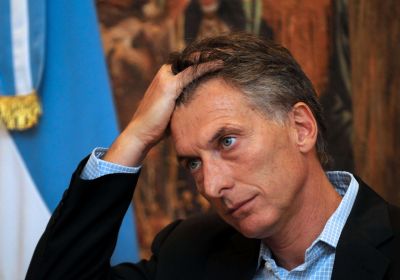 Every year from around Christmas through to February, Argentina is wrapped in a summer trance. The usual, frenzied pitch of city centres is muffled as if by vast blankets of cotton and sticky heat. Families find reprieve from work by travelling to the coast and mountains, visiting distant family and towns in the interior. This lull often translates into a dialling-down of class struggle. There are fewer and smaller mobilisations, strikes and political activism.
Every year from around Christmas through to February, Argentina is wrapped in a summer trance. The usual, frenzied pitch of city centres is muffled as if by vast blankets of cotton and sticky heat. Families find reprieve from work by travelling to the coast and mountains, visiting distant family and towns in the interior. This lull often translates into a dialling-down of class struggle. There are fewer and smaller mobilisations, strikes and political activism.
Mauricio Macri
Mauricio Macri
